Cooperative Coffees
Bongo helped start a co-op of micro-roasters that buys directly from small-scale coffee farmers.
 All of our coffee is organically grown and purchased at prices exceeding standard Fair Trade prices and bought directly from small-scale farmer groups that we've had long-standing relationships with through Coop Coffees - a socially responsible buying group that we helped start in 1999.
All of our coffee is organically grown and purchased at prices exceeding standard Fair Trade prices and bought directly from small-scale farmer groups that we've had long-standing relationships with through Coop Coffees - a socially responsible buying group that we helped start in 1999.
Coop Coffees now has 23 members who together annually import more than five million pounds of coffee.

History
Cooperative Coffees started when Bongo Java and six other small roasting companies joined together to redefine the relationship between coffee farmer and importer. As its name suggests, the group is a legal entity that shares ownership amongst its members. Like the name suggests, the group of like-minded roasters works cooperatively to develop long-term relationships with farmers who have also created a coop to pool their resources to improve quality, afford processing equipment and economically market their coffee.
Before 1999, direct trade between roasters and farmers was a rare thing because transportation economics didn’t make sense. Importing only made sense in large amounts (called containers)- only big roasters needed lots of any one coffee and only big estates produced lots of similar tasting coffee. Instead, roasters could buy from importers who buy containers and then find customers to sell it to in smaller lots. Small-scale farmers were at the mercy of the market and frequently had to sell locally at a lower price.
Bongo and its like-minded allies wanted to put more money in the farmers' pockets.
Bongo and others wanted a different system, not to save on importing fees, but to put more money in the farmers’ pocket. After long discussions, a cross-country drive in a VW van (by CC’s true founder Bill Harris) and long negotiations at a crappy hotel near the Atlanta airport, Co-Op Coffees was born.
The Founding 7 experimented by leveraging $1k from each member and informal commitments amongst them to buy the one container (40,000 lbs) of Guatemalan coffee. This was a risky proposition; no one had ever done this before and a container costs about $80,000. At least a couple of the founders speculated that they each just threw away $1k -- and were liable for a whole lot more!
A New Business model
The group chose the Cooperative business model because it mirrored the way the coffee it wanted to purchase was grown & processed and because in many ways, it’s an easier and more fair way to create partnerships. The small-scale farmers we buy from typically own one or two hectares of land and produce 1,000 or so pounds of beans. Thus, they need to join together to produce enough to export and to afford the necessary processing equipment.
How it Works
Co-Op Coffees works by getting members to commit to buy a specific amount of each of the varieties of coffee the group imports. The group purposely over-charging itself to pay for staff and other overhead. If there is money left over at the end of the year, it is split amongst the members based on how much coffee they bought (which makes sense because they paid the inflated prices). (Coffee co-ops typically split profits based on how much coffee a farmer contributed. And other coops split based on other factors such as how many hours an employee works).
Success wasn’t overnight. We had some expensive learning lessons and relied on volunteers for much of the early years’ work. Eventually, we figured out how to make it work.
Co-Op Coffees now has 24 members together importing about five million pounds of coffee.
Co-Op Coffee’s mission has also expanded during this time. Since its start the group was a leader in social-responsible importing. Over 20+ years, we have developed long-term relationships with many of our farmer groups, which of course, means we’ve gotten to better understand their situation.
COOPERATIVE COFFEES

$150 Million in Coffee
As a cooperative of 20+ roasters located in the U.S. and Canada, we jointly import more than five million pounds of certified organic and fair trade coffee each year. In its 20 years of operation, Cooperative Coffees has purchased more than $150 million of green, unroasted coffee beans.
We get that the established Fair Trade price is an artificially set amount that doesn’t come close to enable most small-scale farmers enough income to support their family. Thus, we’ve consistently paid above what Bongo refers to as the “so-called Fair Trade” price. You can explore our "Fair Trade Proof" system here.
We’ve seen coffee farmers spray harmful chemicals without the aid of any personal protection. Thus, to support the environment and people, we only buy organically grown coffee. And to help farmers pay for the sometimes burdensome certification costs, we agree to buy coffee that is in transition to be organic and have even paid the costs.

Equitable Relationships with Farmers & Grower Communities
We understand that farmers care more about getting a Fair & Equitable price for their coffee than having to rely on speculative commodity trading to determine whether they can feed their family. Thus, we’ve honored purchase contracts even when commodity prices have fallen.
We’ve seen how farmers are solely reliant on this once-a-year fickle crop. Thus, we’ve paid farmers in years when disease destroyed their crop and funded research into finding ways to rid pests on affected farms.
This type of relief developed into our Impact Fund, where members of Cooperative Coffees pay 3 cents per pound to help ensure the future of specialty grade coffee in the face of climate change. The fund finances projects like the construction of coffee drying tables and compost manufacturing facilities, farmer-to-farmer organic agricultural trainings, and more recently, emergency disaster relief grants.
